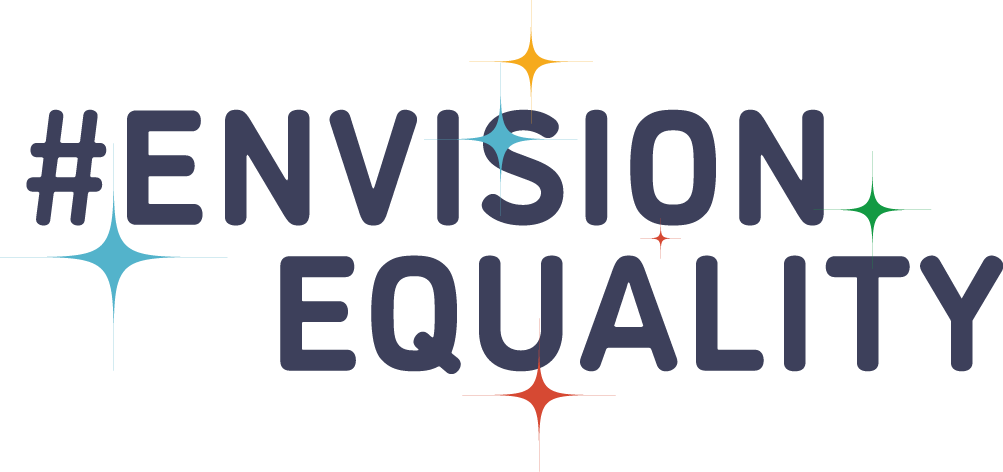
Jensine Larsen
Founder of World Pulse
What do you think it will take to achieve? (Who needs to be a core part of the movement/solutions? What strategies should we be focusing on?)
Both women’s leadership and technology on their own are proven accelerators for social change—deployed together they can provide an exponential rocket boost for global equality. Today, nearly half of the world’s women have access to technology as a transformational tool. Practically speaking, it is one of the fastest levers we have in our hands to surface both women’s local solutions and collective wisdom. And, with the right coordinated efforts, those who are connected to the internet can become agents of change to bring the rest of the world online for good and amplify some of the most unheard voices.
Given the current status of the world, what gives you hope and inspiration that we can achieve equality?
I’ve been steeped in feminist tech for a decade, and I believe that this is a pivotal moment. New innovations and emergent online platforms, communities and tools are poised to ultimately unlock the voices and leadership of billions of women—voices that are still too buried today by oppressive systems and social norms. It’s already happening. Across the globe in the pandemic era, I see women community leaders rising to the moment with technology in hand, creating rapid-response lifelines and connecting to exchange information across geographic distances: joining digital protests, exchanging health information, advising on homeschooling, providing virtual life-saving services for those experiencing domestic violence, mental health crises and more. Despite few resources or little political power, they are moving quickly together, creating vast webs of a global, mutual-aid, care economy. They’re using their online access to protect the most at risk and grab hold of social media to transmit the voices of others who don’t have access. They are also tapping into online communities to find solidarity and strength in the face of exhaustion and despair. They’re using radio, web, Zoom, SMS, social media and more to organize and craft policy demands. They are reaching out across the wires and saying, “Listen to us; we know the way forward.”
In today’s digital age, there is no excuse to not listen anymore. We no longer need to fly women to decision-making tables: technology can bring the table to them—and enable them to build new ones. The act of listening and shifting power to leaders who are rooted in excluded and marginalized communities is the only way that we will find effective and inclusive solutions.
It’s our job to crank up the volume on these often-unheard voices and support their linkages through communications technology, so that they can become an unstoppable, vibrant collective force for equality: quiet no more, loudly roaring with life. The beauty of this vision is that it is woven from multitudes of new visions that will rise and shape our future.
Visions like NouNou of Congo, who uses her cell phone to collect the stories of girls, including refugees fleeing the recent volcanic eruption while coping with menstrual bleeding. Her vision is clear: “In the eyes of humanity, being called Congolese is synonymous with the word ‘victim,’ but I will show that Congolese women are heroines of the shadows. We are not victims but fighters; we are not burdens but leaders. We are women building the future. We are queens!”
Or Christine Terina from a pastoral Kenyan community striving to end female genital cutting: “I hear the bells ringing of a free world, a safe world for children and women, a world where every child could afford a glass of milk a day and education, where every woman could afford to fill a basket with basic groceries for their loved ones. A world without corruption where no nation takes advantage of another nation but rather grants them help instead of enslaving them with loans that cannot be paid by nine generations.”
Or Insia Dariwala, an artist and advocate for ending child abuse in India: “I want a rainbow now. I want the beauty of colors to fill this world which is only painted in hatred so far. I want to see smiles being put in the pockets of the poor, instead of half a kilo mutton and a hundred rupees. I want to see flower beds and water sheds, instead of shit and gutters along the roads. I want children to spread their arms for a hug, instead of alms. I want women to rejoice in the knowing that they can walk around freely, with men giving them assuring nods. I want to go out to the market and buy good health instead of adulterated vegetables. I want the Mangroves to stay. I want the pets to play. So If you are bleeding, I will be there at your side—whether you are Hindu, Muslim or of some other pride. I will be there because no dot, no politician, no leader can paint that rainbow for me. The palette is us.”

